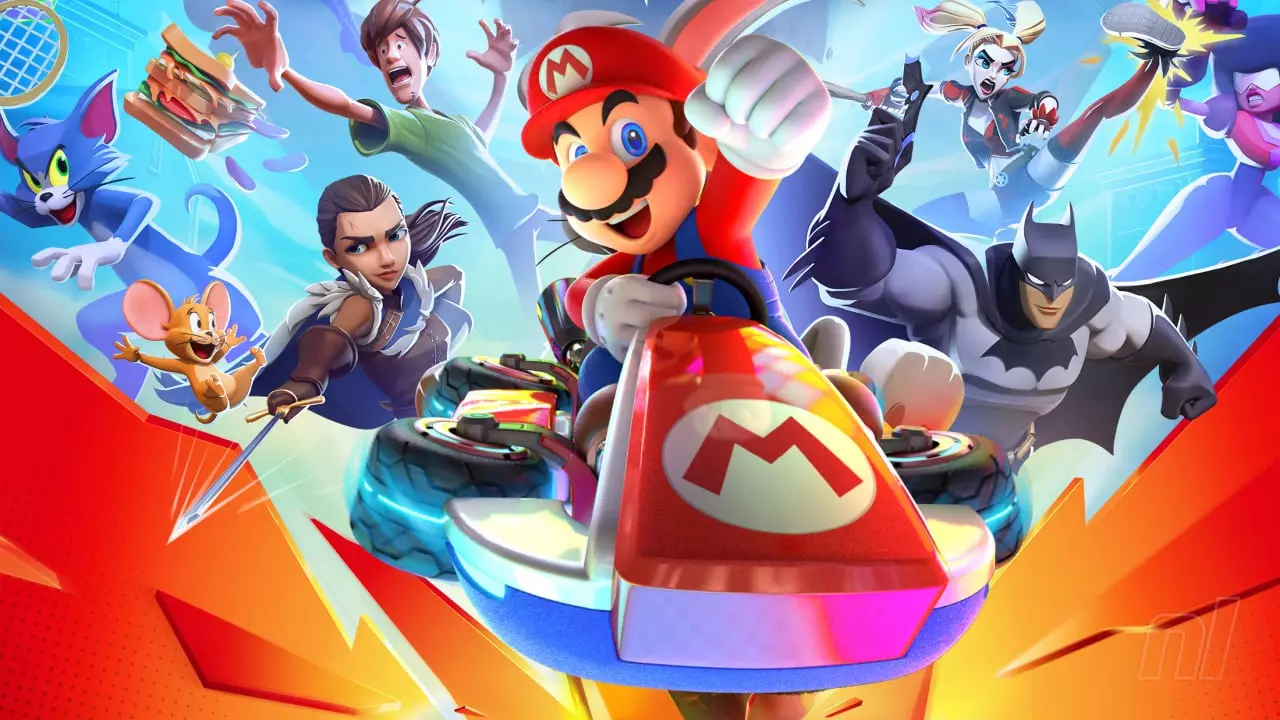The gaming industry is a relentless landscape, where innovation meets occasional missteps, leading to both stunning successes and bitter failures. Warner Bros., a titan in the entertainment segment, has been a player in the gaming arena for years, but recent announcements indicate a troubling trajectory. The abrupt shutdown of three of its studios, including Player First, which was behind the promising brawler MultiVersus, raises a hornet’s nest of questions regarding the future direction of the publisher. One can’t help but wonder—what could have been if their latest venture, a Mario Kart-inspired racing title codenamed Project Moonlight, had seen the light of day?
A Glimpse into Project Moonlight
According to reports from the Sacred Symbols podcast, it appears that Project Moonlight was nascent with potential. Initially developed under WB San Diego amid the collective hardships of the COVID-19 pandemic, the project aimed to harness beloved Warner Bros. characters such as Scooby-Doo, Tom & Jerry, and those from the Adventure Time universe into a racing experience reminiscent of the iconic Mario Kart. The codename alone invoked a sense of whimsical charm, but the road to its development was far from idyllic. The project struggled with staff rotations, inconsistent vision, and a polarized internal environment.
Could we have witnessed a vibrant array of characters, each with unique abilities, racing across imaginative tracks? The idea of merging a rich tapestry of Warner Bros. intellectual properties into a single high-octane experience is captivating. However, entertainment legends are fraught with challenges, whether it be aligning the vision of diverse contributors or deciding on fundamental business strategies like the revenue model—should it be free-to-play or a traditional buy-in?
The Disappointing Fallout
As the studio landscape shifted with the closure of Player First and internal frustrations brewing, Project Moonlight faced a devastating fate. What should have been an exhilarating culmination of ambition became a distant dream, seemingly trapped in a limbo of corporate restructuring and uncertainty. The unsettling fact is that while the MultiVersus team had their moment in the spotlight, the creators behind Project Moonlight were left in the shadows, their work rendered meaningless due to circumstances beyond their control.
Many within the WB San Diego team reportedly felt resentment. They had poured their hearts into a game that never had the opportunity to wow audiences, while a sister studio achieved a successful launch—not once, but twice. This dichotomy between internal factions raises critical questions about the management strategies employed by major gaming corporations. How can they stifle creativity and morale when they disregard the value of every project, regardless of the consumer’s previous reaction to similar titles?
The Competitive Racing Scene
Warner Bros. wasn’t the only company with aspirations of capturing the lucrative kart racing market. Recent attempts by other large franchises, such as Disney Speedstorm and DreamWorks All-Star Kart Racing, testify to the demanding yet rewarding nature of this genre. All of these titles clamor to fill the sizeable void left by Mario Kart, which continues to reign supreme. Even as these competitors attempt to join the fray, they often stumble, unable to replicate the magic that Nintendo has perfected over decades.
Given the popularity of the Mario Kart brand, you might puzzle why Warner Bros. would not pursue this opportunity more aggressively. However, the writing on the wall may indicate that, like previous endeavors, the flawed execution of games such as MultiVersus has left them gun-shy. In this light, Project Moonlight’s potential to revolutionize the racer landscape may have become a victim of corporate hesitance.
Juggernauts Amidst Uncertainty
As we reflect on the prospects of Project Moonlight, it’s crucial to critique the broader implications of Warner Bros.’ recent decisions on the gaming ecosystem. A player with such deep pockets and significant intellectual properties should be prepared to compete in various arenas. Dismantling studios prematurely stifles innovation and enthusiasm and can ultimately lead to a loss of talent and creative spark. As the industry evolves, the importance of nurturing and developing ideas—no matter their scale—cannot be overlooked.
While this dawn of potential was extinguished in its infancy, the overarching narrative remains a testament to the turbulent nature of the gaming world. Warner Bros. must recalibrate its methods if it hopes to cultivate the next generation of bankable titles and fan-favorite experiences. As we watch the landscape shift, our hopes linger on the characters and concepts that may once again take center stage, provided a platform to shine.

